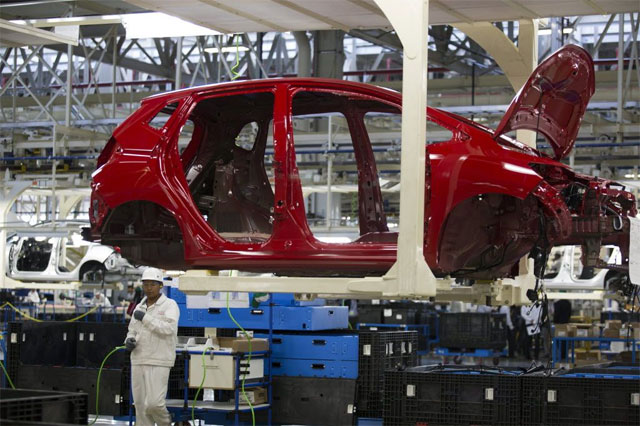
The United Auto Workers union succeeded at clawing back some of the major concessions made in order to help the Detroit Three carmakers survive the 2008 financial crisis.
But while the wage gains are significant, the UAW was not able to fully close a much-maligned pay gap between newer hires and those with seniority.
It was also unable to stop FCA US from shifting some US production to Mexico, but union officials said they do not expect to see any jobs lost because demand for the vehicles that will remain in the United States is so strong.
Read: Hacking sends shivers through brave new world of digital cars
"Once the membership looks at it, I think they'll ratify it. They'll see it's a fair and balanced agreement," UAW president Dennis Williams told reporters.
The UAW contracts cover 142,000 workers at the Detroit Three, of which nearly 40,000 work for FCA.
The union has traditionally negotiated similar contracts with all three major US carmakers in order to prevent their employers from suffering competitive disadvantages.
But Williams has indicated he may seek richer deals from GM and Ford because they are on better financial footing than FCA.
Fiat Chrysler chief Sergio Marchionne called the tentative agreement a "transformational deal" in a letter to employees.
"It guarantees that our workers will share equitably in the success we are able to generate working together while ensuring that our company will be able to remain competitive," he said.
"This new contract represents a major step forward in enabling greater and more direct involvement of our workers in the achievement of the strategic objectives of FCA and recognizes the central role that you all play in building our common future."
The union's executive council voted to endorse the contract on Friday. Ratification votes are expected to begin next week at plants across the country.
Workers with seniority who currently earn between $28 and $33 an hour will get three percent raises in the first and third year of the contract and lump sum payments in the second and fourth years of the contract.
Those on the 'second-tier' who were hired after 2007 will see their hourly wages increase from the current rate of $16 to $21 up to $22 to $25 over the course of the four-year contract.
Everyone will get a $3,000 signing bonus.
The union also won an increase in the profit sharing formula, which will pay workers $800 for every one per cent in profit margin generated by the company in North America.
FCA also agreed to a new quality and productivity bonus which could give workers an extra $4,000 to $13,000 over the course of the contract.
The company also promised to invest $5.3 billion in its US factories and products over the next four years.
However, that investment comes with the bitter pill of production realignment.
Production of lower-margin compact vehicles such as the Dodge Dart, Chrysler 200 and Jeep Compass and Patriot would all move to Mexico.
Read: Fiat will recall 1.4m cars to prevent hacking
A passenger car assembly plant in Sterling Heights, Michigan will be retooled into a truck plant and will build the next generation of the Dodge Ram.
The Warren, Michigan plant which currently builds the Ram will instead become a 'swing' plant building light trucks as well as the proposed Grand Wagoneer and the extra Grand Cherokees FCA hopes it will needs to satisfy export markets in the Europe and the Middle East.
Meanwhile, production of the Jeep Cherokee would move from Toledo, Ohio to Belvedere, Illinois while the Toledo plant is re-tooled for the next generation Wrangler and perhaps a new Jeep pick-up truck.
The union was also able to protect its generous health care benefits despite rising costs and to recover some items lost during the recession such as double-time pay for working on Sunday.
"Sundays are important to us," Williams said.

1732274008-0/Ariana-Grande-and-Kristin-Chenoweth-(1)1732274008-0-165x106.webp)



1732273396-0/Copy-of-Untitled-(72)1732273396-0-270x192.webp)
1732269802-0/Copy-of-Untitled-(71)1732269802-0-270x192.webp)
1732261957-1/Copy-of-Untitled-(66)1732261957-1-270x192.webp)


1732258132-0/BeFunk_§_]__-(26)1732258132-0.jpg)






COMMENTS
Comments are moderated and generally will be posted if they are on-topic and not abusive.
For more information, please see our Comments FAQ